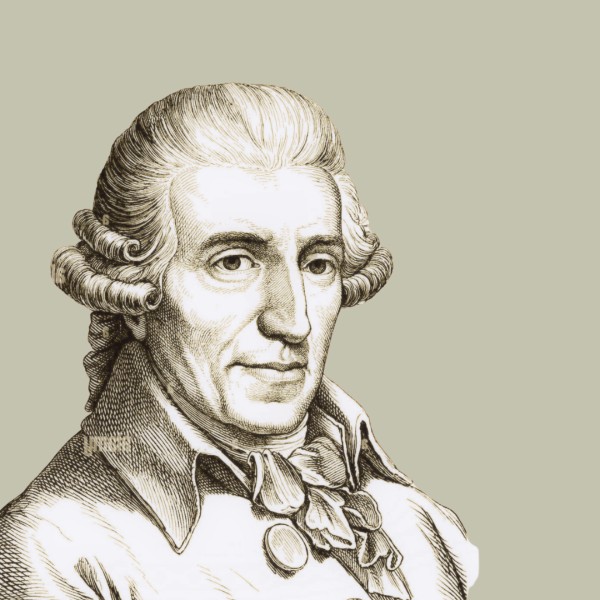Throughout classical music history, remarkable women have not only contributed their musical talents, but imparted wisdom through their words.
In this article, we’ve gathered twenty thought-provoking quotations by women composers, offering a glimpse into both their struggles and their triumphs, with a focus on the issues that tend to be especially relevant for women.
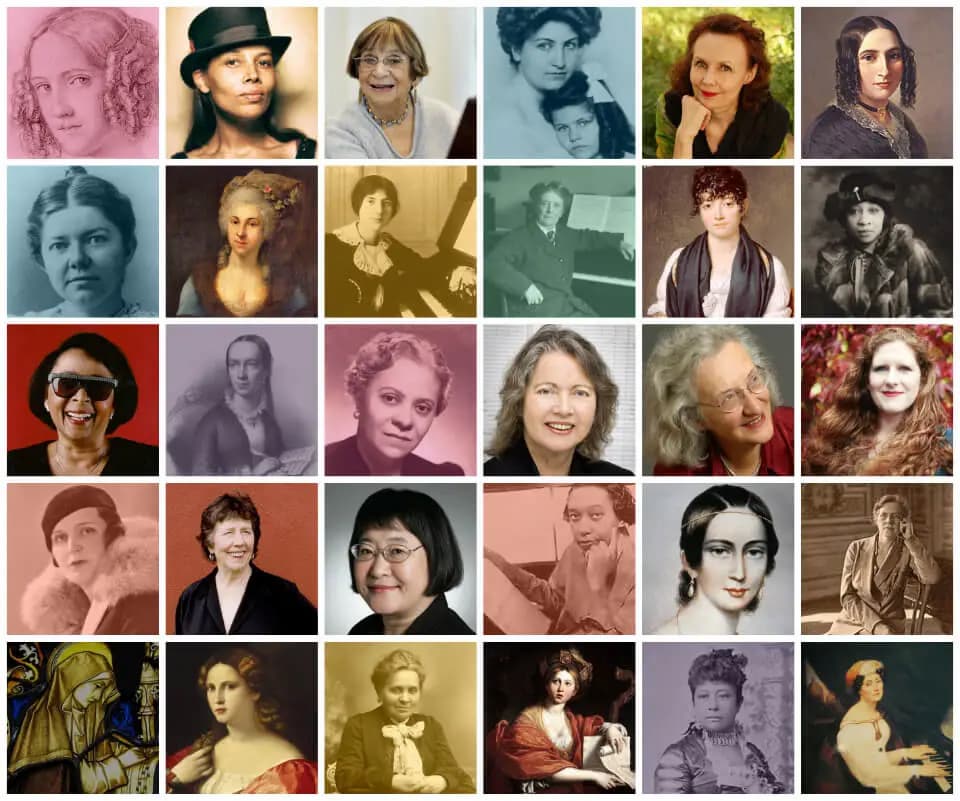
© musicbywomen.org
On Inspiration
Glance at the sun. See the moon and the stars. Gaze at the beauty of the Earth’s greenings. Now, think.
Hildegard von Bingen (1098-1179)
Composing gives me great pleasure… There is nothing that surpasses the joy of creation, if only because through it one wins hours of self-forgetfulness, when one lives in a world of sound.
Clara Wieck Schumann (1819-1896)
On the Process of Composing
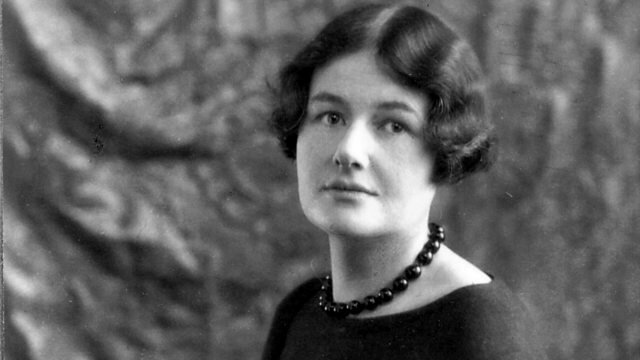
Rebecca Clarke
There’s nothing in the world more thrilling, or practically nothing. But you can’t do it unless – at least I can’t; maybe that’s where a woman’s different – I can’t do it unless it’s the first thing I think of every morning when I wake and the last thing I think of every night before I go to sleep.
Rebecca Clarke (1886-1979)
On New Music and the Canon
I think Beethoven needs someone next to him that reminds you the music is vulnerable rather than it’s just a masterpiece and so therefore why should we even bother to think about it. The wonderful thing about new music is the reaction it provokes. “Do I like this or don’t I like it?” The audience is reacting to the music itself. With Beethoven, they don’t do that.
Joan Tower (1938-)
With any new kind of programming and endeavor, you take a leap of faith that the audiences are going to be into it. I find audiences show up because they want to experience live music, live theater, something that sparks their imagination and soothes their pain. That’s how it functions, really, at the end of the day.
Jessie Montgomery (1981-)
On Accessibility
You don’t need any specialized education and you don’t need to know anything about the world in which I work. I think my music should be able to speak to you even if you’ve never been to a concert of classical music before.
– Jennifer Higdon (1962-)
I want my music to be something that people use in order to access parts of themselves. So in that sense, every piece I write is about all emotions at once, about the lines in between. It’s never only about one thing or another. It’s emotionally getting at those things that we can’t really describe – things for which we don’t have labels.
Missy Mazzoli (1980-)
Music has a unifying effect on the peoples of the world, because they all understand and love it… And when they find themselves enjoying and loving the same music, they find themselves loving one another.
Julia Perry (1924-1979)
On Piano Playing
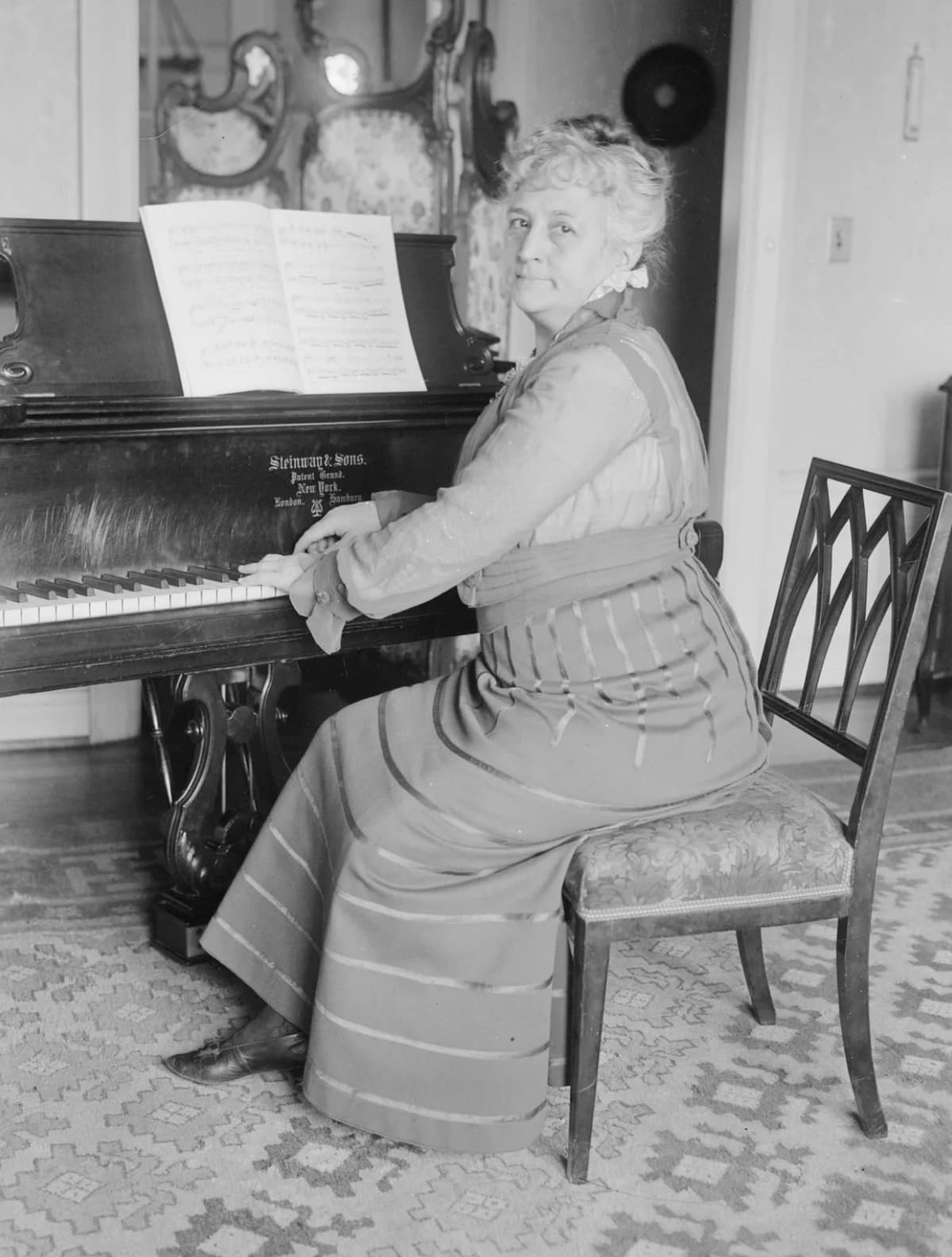
Teresa Carreño
I wish to make my pupils feel that piano playing is easy, not difficult; to make them regard practice as a joy, not a burden; to have them go to the piano as a painter, with a beautiful idea to express, goes to his canvas, takes up his palette and brushes and mixes his colours. But the tension under which so many players labor is dreadful.
Teresa Carreño (1853-1917)
On Sexism
Music is the superlative expression of life experience, and woman by the very nature of her position is denied many of the experiences that color the life of man.
Amy Beach (1867-1944)
Women are expected to be wives, mothers, and do all the nasty things in the community (oh, I do them). And if a woman is cursed with having talent too, then she keeps apologizing for it… It really is a curse, in a way, because instead of working 12 hours a day like other women, you work 24.
Margaret Bonds (1913-1972)
On Perseverance
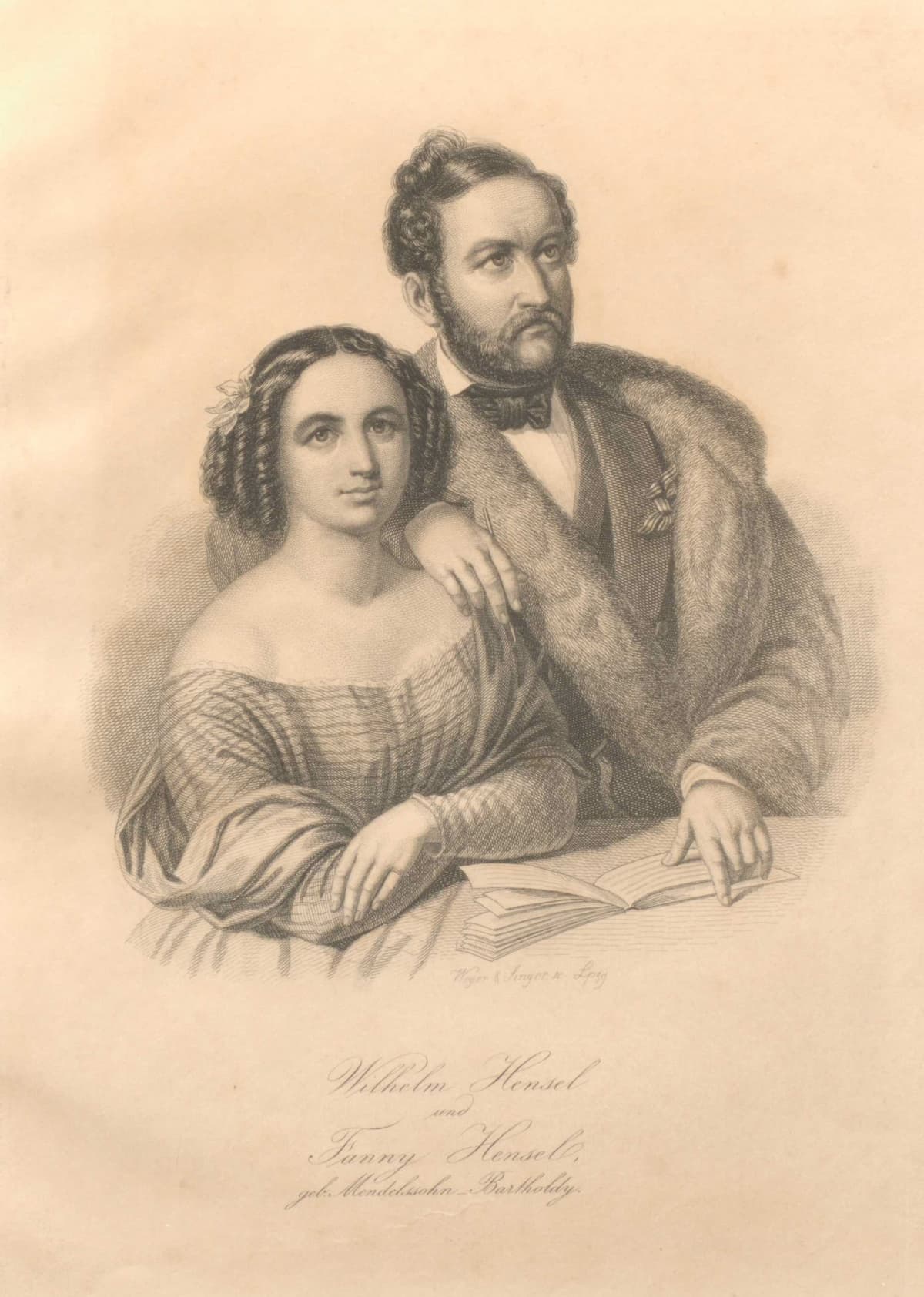
Fanny and Wilhelm Hensel
It must be a sign of talent that I do not give up, though I can get nobody to take an interest in my efforts.
Fanny Mendelssohn Hensel (1805-1847)
I have had a very difficult life, you know. Only I do not like to talk about it, because I write happy music as a release. But anyway things were always against me. Whatever happened, it was against me.
Germaine Tailleferre (1892-1983)
On Bravery
I hate silence when it is time to speak.
Kassia (810-865)
If your lot makes you cry and be wretched, get rid of it and take another; strike out for yourself; don’t listen to the shriek of your relations…don’t be afraid of public opinion in the shape of the neighbours in the next house, when all the world is before you new and shining, and everything is possible, if you will only be energetic and independent and seize opportunity by the scruff of the neck.
Bettina von Arnim (1785-1859)
On Ambition
I feel I must fight for [my music], because I want women to turn their minds to big and difficult jobs; not just to go on hugging the shore, afraid to put out to sea.
Ethel Smyth (1858-1944)
To tell the truth, I struggle with my body to free myself; I want to be fully and wholly to myself; I must triumph, and I give up the idea of living for someone else. The needs of my art create a life that I ought not to forsake.
Marie Jaëll (1846-1925)
On Racism
One of the most evil effects of racism in my time was the limits it placed upon the aspirations of blacks, so that though I have been “making up” and creating music all my life, in my childhood or even in college I would not have thought of calling myself a composer or aspiring to be one.
Undine Smith Moore (1904-1989)
On the Future of Music
Since music is making very fast progress thanks to the young composers, I know that I can only take the back seat now, because I can’t outdo myself, and the truly novel things will be invented by the young ones, not by me. But this doesn’t worry me at all. Everyone has their place in the world. I do, or rather I would like to do, what I can do best – and that’s all.
Grażyna Bacewicz (1909-1969)
I do not believe that the few women who have achieved greatness in creative work are the exception, but I think that life has been hard on women. It has not given them opportunity, it has not made them convincing. A woman has not been considered a working force in the world, and the work that her sex and conditions impose upon her has not been so adjusted as to give her a little fuller scope for the development of her best self. She has been handicapped and only the few through force of circumstances or inherent strength have been able to get the better of that handicap. There is no sex and art. Genius is an independent quality. The woman of the future with her broader outlook, her greater opportunities will go far, I believe, in creative work of every description.
Cécile Chaminade (1857-1944)
For more of the best in classical music, sign up for our E-Newsletter

